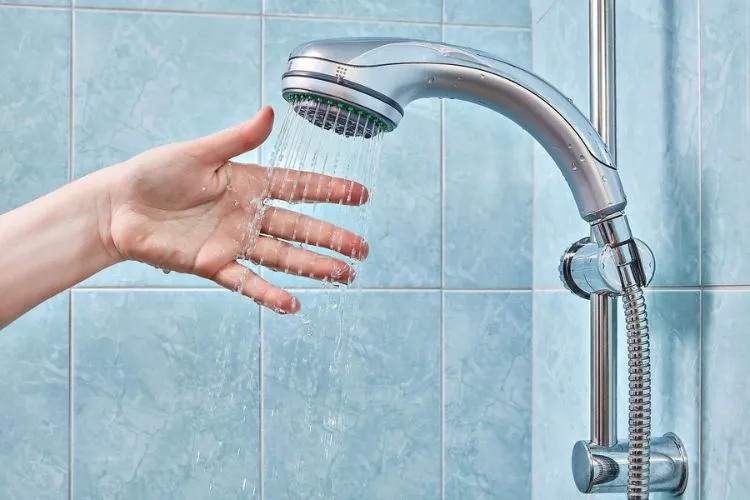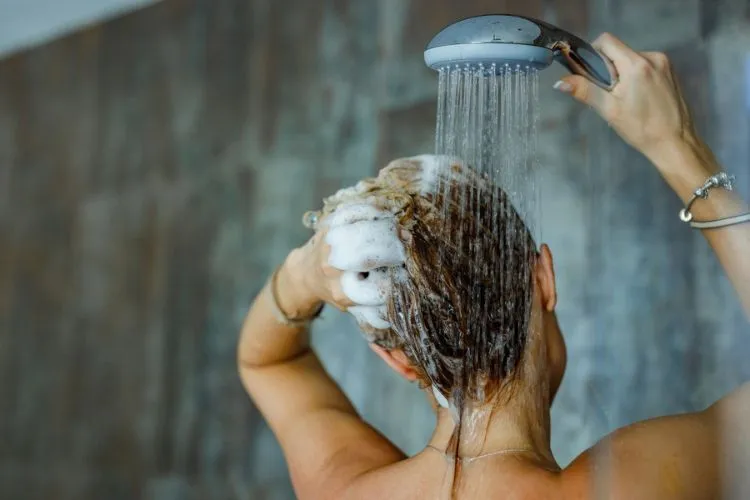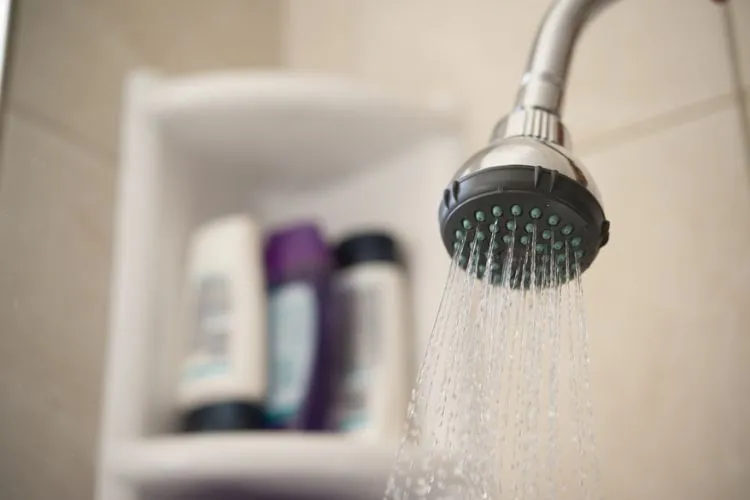Hard water is a common issue faced by many households. This type of water contains high levels of minerals, such as calcium and magnesium, which can lead to several problems in the home.
From scaling on pipes and appliances to dry skin and hair, the impact of hard water is far-reaching.
An approach to mitigate these effects is through the use of shower filters. So, do shower filters work for hard water?
This article explores the effectiveness of shower filters in dealing with hard water and aims to provide a deeper understanding of their functionality.

💦 Understanding Hard Water
Hard water is defined by its high mineral content. These minerals can lead to scale buildup, which affects appliances and plumbing.
Additionally, hard water can make skin and hair dry and cause soap to lather poorly.
The daily showering experience can become less enjoyable, with soap scum more visible and water feeling less refreshing.
💦 What are Shower Filters?
Shower filters are devices designed to filter out impurities from water as it flows to the showerhead.
They come in various types including Vitamin C filters, carbon filters, KDF filters, and those using chelating agents.
Each type targets specific impurities and works to improve water quality in different ways.
💦 Do Shower Filters Work for Hard Water?
To understand the effectiveness of shower filters for hard water, it’s essential to examine the types of filters available and their specific functions.
Types of Shower Filters and Their Effectiveness
Vitamin C Filters are known for their ability to remove chlorine and chloramine, improving the water’s smell and feel. However, they have limited impact on hard water minerals directly.
Carbon Filters excel at removing chlorine, some chemicals, and odors, making water softer on the skin. Like Vitamin C filters, their effectiveness on mineral content is limited.
KDF Filters stand out for removing chlorine and some heavy metals. They are somewhat effective in reducing limescale, which is a direct consequence of hard water minerals.
Chelating Agents use a different approach by binding with minerals in hard water, making them more soluble and less likely to cause scaling. This process improves the water’s quality considerably concerning hard water issues.
Several factors affect the effectiveness of these filters, including the water’s flow rate and temperature, the maintenance of the filter, and the specific water composition in different regions.
💦 Pros and Cons of Using Shower Filters for Hard Water
The use of shower filters presents several advantages and disadvantages. The pros include improved skin and hair health, extended lifespan of bathroom fixtures, and better performance from soaps and shampoos.
However, shower filters may not remove all mineral content, and the need for regular maintenance and filter replacement adds recurring costs.
Some users might notice a drop in water pressure as well.

💦 Installation and Maintenance
Installing a shower filter is generally straightforward and doesn’t require professional assistance.
The key to ensuring its effectiveness and longevity lies in regular maintenance.
This includes cleaning the filter unit and replacing the filter cartridge as recommended by the manufacturer.
💦 Alternatives to Shower Filters for Hard Water
For those seeking solutions beyond shower filters, whole house water softeners, magnetic water descalers, and citric acid-based products offer alternatives.
Each comes with its own set of benefits and considerations, providing options for comprehensive water treatment.
💦 Pro Tips
Testing water hardness levels is a critical first step in addressing hard water problems. A proper understanding of one’s specific water quality can guide the selection of the most appropriate filter or treatment method.
For those with severe hard water issues, a combination of treatments might offer the best results.
💦 Future of Shower Filtration: Innovations and Trends
As we look towards the future, shower filtration technology is poised for significant advancements, with consumer expectations driving innovation and demanding more sophisticated solutions.
Emerging trends suggest a shift towards smart filtration systems, which could automatically adjust filter settings based on real-time water quality analysis, ensuring optimal performance without manual intervention.
Additionally, the integration of environmentally sustainable materials in filter construction is likely to increase, aiming to reduce plastic waste and the overall environmental footprint.
Another promising innovation is the development of multifunctional filters that offer additional benefits, such as enhanced water-saving features or the infusion of beneficial minerals and skin-care ingredients.
These advancements are expected to not only elevate the showering experience but also contribute to water conservation efforts and promote a healthier lifestyle through improved water quality.

💦 Frequently Asked Questions (FAQs)
How do I know if I have hard water in my home?
A simple way to identify hard water is to look for signs like soap not lathering well, the presence of scale on appliances, or dry skin and hair after bathing. For a more exact measure, water testing kits are available.
Can a shower filter completely eliminate hard water?
Shower filters primarily reduce the effects of hard water, such as skin and hair dryness, rather than eliminating the water’s high mineral content. For complete removal, a whole-house water softening system may be necessary.
How often should I replace my shower filter cartridge?
The frequency of replacement varies by the type of filter and water usage. Generally, manufacturers recommend changing the cartridge every 6 to 12 months for optimal performance.
Is there a noticeable difference in water pressure with shower filters?
Some users might experience a slight reduction in water pressure. This variance usually depends on the filter type and the existing water pressure in the household.
What should I look for when buying a shower filter for hard water?
Consider filters that target the specific issues caused by hard water in your home. Also, look for ease of installation, maintenance requirements, and the cost of replacement cartridges.
Conclusion:
Shower filters can significantly improve the quality of hard water in the shower, although they may not remove all mineral content.
The choice of filter type and maintaining the unit are crucial for effectiveness.
For those dealing with hard water, it’s essential to consider individual water quality and needs in choosing the most suitable solution.

Devon Shorts, a seasoned expert with over a decade of experience in water safety, shares valuable insights on this blog “Aqua Safety Plus”. Trust his expertise to keep your water clean and your family safe.
